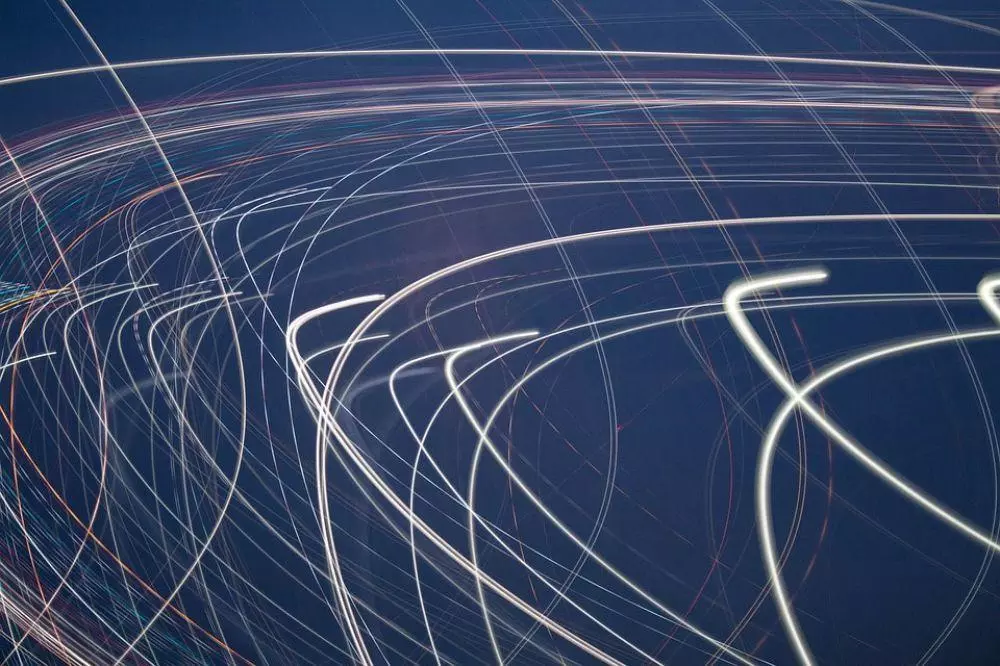In 1989, Tim Berners-Lee created the world wide web; an invention that was hailed as revolutionary and a catalyst for a whole new era of technological development – the rest is history. Society is now in many ways completely reliant on the internet, and its impact affects the world in virtually every aspect of peoples’ lives. Yet despite the seemingly unmatchable change that the world wide web has brought, similar revolutionary claims are being made once again today.
This time it’s about blockchain – a concept with the potential to cause the ground-breaking change to the financial systems that society is accustomed to. But what is it? Blockchain is quite a complex concept, and a whole article could be written to explain it. To put it briefly, it is a peer-to-peer digital ledger in which records are compiled into a block, which is then added to the chain in a permanent and unalterable way. It is decentralised, and instead, the information is stored across a network of a large number of computers all over the world. It was originally designed to provide a platform for the bitcoin cryptocurrency, but its wider potential uses are now increasingly being researched and theorised.
The Benefits

Blockchain has many benefits for both businesses and individuals. On a more general level, improvements in security and transaction speed are two of the most notable advantages.
Security is improved through decentralisation and cryptography; by operating through a large peer-to-peer network, there is no ‘master’ copy for a hacker to corrupt, while cryptography ensures that once a block is added to the chain the process cannot be reversed. At the same time, transaction times are reduced dramatically, again due to the peer-to-peer network system. As it allows for transactions to be validated through the network, it effectively removes the need for a ‘middle man’, thereby speeding up the process significantly.
These benefits are leading experts to hail a significant shift; a shift from the ‘internet of information’ to the ‘internet of value’.
Currently, the internet could be described as information-centric, and it was never actually designed to allow for the exchange of value. For example, the transferral of money online does not actually involve the direct movement of funds. The transfer is instead simply a sending of information – specifically, of instructions – to an intermediary, who will then pass the value over. The same applies for online marketplaces that don’t only involve money. An example is Airbnb, where a property is rented in exchange for a fee.
But the presence of an intermediary inevitably comes at a cost, and so blockchain also helps to lower transaction fees. Intermediaries have been said to ‘tax the system’ by Don Tapscott, a leading figure in the development of blockchain.
A Blockchain Revolution?

It is aspects such as this that could be set to change through a blockchain revolution, through which the internet will become an ‘internet of value’. Businesses and industries are already considering the ways that their operations could transform following this transition.
Firstly, as already alluded to, the financial transactions that are made so regularly could potentially become far quicker and cheaper than they currently are. Innovative financial companies are already emerging with promises to do the above, and cross-border payments through blockchain are an area of particular focus.
A report published in 2015 by Santander InnoVentures claimed that blockchain could generate cost savings in cross-border payments of $15-20bn per year by 2022; savings made possible largely because of the absence of a middle-man that both increases costs and the time for a transaction to be completed. In the age of an ‘internet of value’, both domestic and international transactions would be instantaneous and cheap.
Expanding to Other Industries

The implications of blockchain are not limited to financial institutions either – the creative industries could see dramatic changes from an internet of value. The royalties-based system in place at present is well-known for its flaws – in particular, the way that the artists are not paid fairly for their work in comparison to the platforms that share it. However, blockchain could pave the way for more artist-friendly systems. These could potentially involve micropayments, whereby artists could be paid a couple of pence for every time their song is played, or their article is read, for example. Music companies are emerging based on this – award-winning artist Imogen Heap has set up Mycelia, which uses smart contracts to enable the artists to be paid directly without the need for a record label or any other intermediary. Large music corporations such as Spotify will need to respond to these developments to ensure they do not lose out.
As ground-breaking as blockchain sounds, critics argue its effects will be less revolutionary that initial claims suggest. Some suggest that financial intermediaries will remain powerful because they offer service currently beyond the capabilities of blockchain, such as mortgages. Thus, while blockchain technology may change the financial sector’s processes, the main players are likely to remain unchanged. Additionally, others believe that the potential and capability of blockchain will scare governments into regulating its use. Clearly, blockchain is a concept with huge potential to change the way the internet and finance interact, and it does seem only a matter of time until the internet moves away from only information, and becomes an internet of value.







Leave your comments
Post comment as a guest